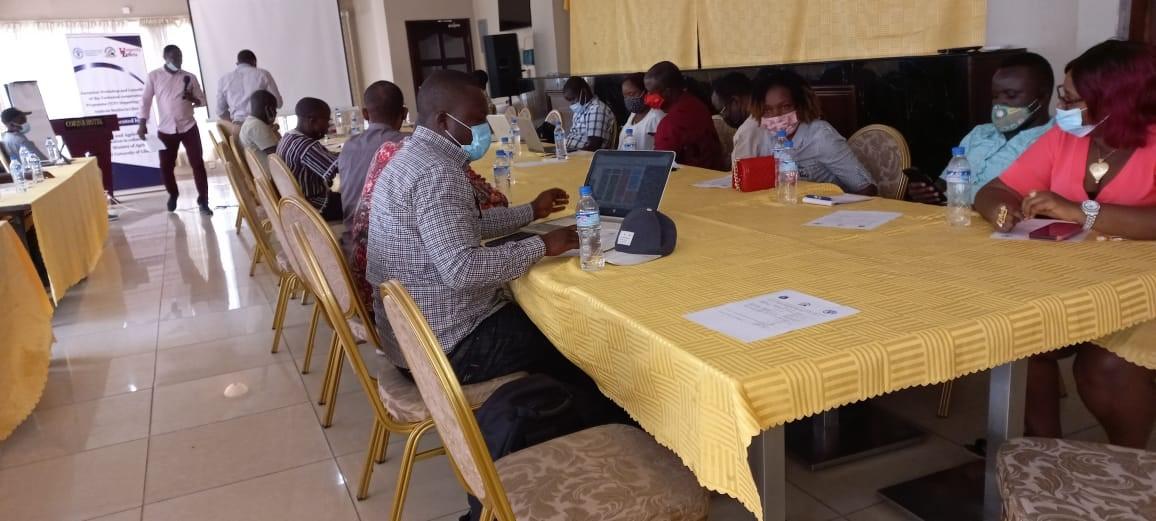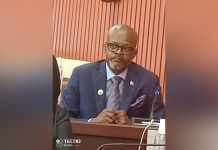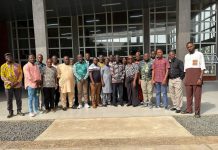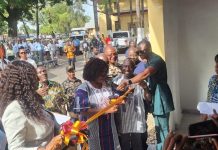Africa-Press – Liberia. MONROVIA –
The Food and Agriculture Organization (FAO) in collaboration with stakeholders in the Liberia’s agriculture sector have had a day-long dialogue on the need to strengthen soil analysis and information system to enhance sustainable soil management and support evidence based decision making in Liberia.
According to FAO who organized the event, over a decade, there have been little or lack of information on soils inventories due to insufficient funding by research agencies; such as, The Environmental Protection Agency (EPA) and Centre of Agriculture Research Institute (CARI) and the availability on recent soils data and collective research work is also lacking on the studies of basic soil properties and classification.
According to FAO, the Technical Cooperation Programme (TCP) titled: “Strengthening soil analysis and information system to enhance sustainable soil management and support evidence based decision making in Liberia” is directly funded by the Food and Agriculture Organization of the United Nations which pillars its approach to the transformation of the food system.
As the foremost priority for our current medium-term development programme – the country programming framework (2020 – 2023), FAO attaches great importance to this intervention that, though meant to be catalytic, would lead to evidence-based decision making in production. Beyond agriculture and food production, however, it is confirmed by the technical experts, that the evidence to be generated from the TCP will also inform all other interventions that concern the use of the soil.
Hence, the benefits would be enjoyed by the wider segment. Foundationed on these, FAO says it is pleased with the level of support from the government, academia, and hopes to sustain engagements with private sector actors and local communities – the very end users of the product of TCP.
“From the broader development perspective, FAO leads, under Pillar 2 of the ProPoor Agenda for Prosperity and Development, the efforts of the United Nations Country Team to provide the enabling environment that ignite and facilitate more sustainable jobs and economic development. As part of these, we launch a TCP today that support the food system, working from production (soils first, and then seeds, irrigation, tools/technology, and good agronomic practices), to processing (storing and transporting/distribution) and marketing – where thousands of jobs are possible and strengthening of Liberia’s macroeconomic fundamentals rests.
“For a whole of a system approach, FAO, also places emphasis on food safety and control, so that handling and preparation are done according to safety standards and that adequate disposal is ensured, upon consumption. Towards this, another technical cooperation programme is ongoing with the government of Liberia, led by the National Standards Lab (Ministry of Commerce), Ministry of Health, National Public Health Institute and the Ministry of Agriculture.
“My esteemed Government of Liberia colleagues and stakeholders, as these TCPs are meant to initiate efforts that are catalytic, we count on the government of Liberia to ensure that the products are included in its development priorities, so that gains made are sustained when the programme phases out. Similarly, FAO reassures the government of its support to helping make the seed system work – for we have all acknowledged that the food system is from seeds/soil to consumption/waste.”
Background of soil testing
In 2007, Similar Soil studies was conducted jointly and it supported by FAO, “STATUS AND PRIORITIES FOR SUSTAINABLE SOIL MANAGEMENT IN LIBERIA” in Bong, Lofa, Margibi and Monsterrado where CARI was the implementing Government agency.
However, the latest published article on soil classifications and soil series land use, was also an adopted approached based on other studies, such as; 1944-1948, Titled: Reconnaissance soil survey of Liberia by William E. Reed.
The minimum interval of Soil studies in various geographical areas varies with over a period, normally every two years which is cost intensive. With climate change increasing globally, there is a need to know the level of soil /land degradations and erosion caused by farming practices and land used systems, which can be determined by periodic soil analysis for amendments of used up nutrients, and will seek to increase sustainable soil and land management for food production.






